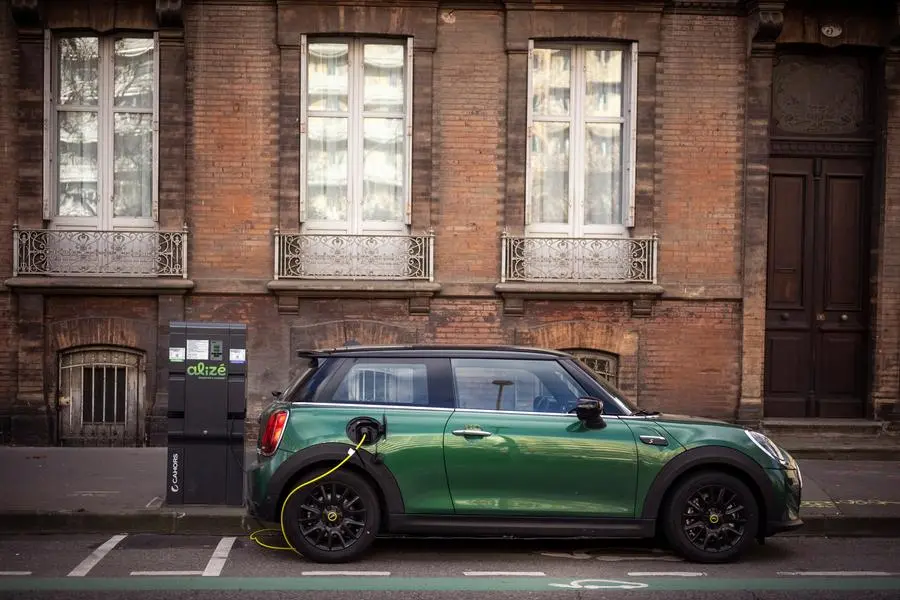PHOTO
The electrification of the auto industry is gathering pace, particularly in Europe, where the sale of new cars running on petrol and diesel will end in 2035.
But challenges remain around their production, affordability and whether enough infrastructure can be put in place to persuade drivers to make the switch.
- China in pole position -
European carmakers were hobbled in 2022 by a lack of semiconductors, the computer chips that are key for numerous systems on all types of cars.
But electric car sales held up quite well.
China is a leader in the electrification of cars, with favourable policies and EV sales that have doubled in 2022.
But experts have warned sales could slow there in 2023 alongside shifts in the Chinese economy.
"China's BEV (battery electric vehicle) growth will moderate in 2023, after a meteoric rise in 2022 of more than 100 percent year-on-year," said Al Bedwell, director of Global Powertrain at LMC Automotive.
"The country's slowing economy and unavoidable retail price increases will dampen Chinese BEV and plug-in hybrid demand, though much volume will still be added."
But he predicts sales in Europe should pick up speed this year after growing by only 21 percent last year due to supply constraints.
"Europe's sluggish 2022 BEV growth will accelerate to 50 percent in 2023 as the chip crisis eases," said Bedwell, though he said it will still continue to impact vehicle availability through 2023.
The United States is giving its electric car industry a major boost with the passage of a $370 billion green energy bill that includes tax cuts for US-made electric cars and batteries.
In total, one in eight cars sold worldwide in 2023 could be electric.
- Tesla dominance -
Elon Musk's Tesla remains the biggest seller of electric cars globally. Tesla sold 1.3 million units in 2022, driven by its Model Y SUV. It predicts a 37 percent increase for 2023 to 1.8 million cars.
But Chinese firm BYD has it in its sights.
The manufacturer almost tripled its sales of electric vehicles in 2022 to 900,000 cars, and intends to develop in Europe and North America.
Chinese manufacturers like BYD or rival carmaker NIO are "the most competitive in the world, work harder and smarter", Musk said himself in January.
Traditional auto giants like Volkswagen and Stellantis group -- which owns Peugeot and Jeep -- are also stepping up their launches of electric models.
Luxury brands such as Rolls Royce and Ferrari are also planning to launch their first battery-powered models soon.
Japanese automaker Toyota has continued to defend hybrids, however, presenting them as being more accessible and the only concrete solution for the energy transition.
- Price war -
Electric cars are on average much more expensive than their petrol equivalents, ranging from about 35,000 euros ($38,000). This puts them out of reach for many drivers, despite heavy subsidies being offered.
But Tesla announced price cuts of up to 20 percent in Europe and the United States in early January, quickly followed by a similar move from Ford.
In Europe, manufacturers could follow a similar route to gain market share, but also in order to comply with increasingly stringent European CO2 emission standards, according to German analyst Matthias Schmidt.
"2022 was a problem of supply, (but) we're likely to see a complete switch," he said.
"If (manufacturers) start to panic, we're likely to see more and more cuts."
Producers could also react to Chinese manufacturers ramping up production, with plans to produce in Europe at a cheaper price.
Smaller and cheaper models, such as the Renault 5, are also due to hit the market in the next few years.
Manufacturers in 2023 "will have to go to their consumers and push the vehicles", Schmidt said.
- Charging spaces -
Fear of breaking down remains one of the main factors that deters drivers from switching to electric vehicles.
Most are limited to a few hundred kilometres and recharging can take anything from twenty minutes to several hours depending on the terminal.
This means the development of a network of fast and accessible terminals for charging is crucial to these cars viable for longer journeys.
The EU will need 3.4 million charging points by 2030, according to a report by consulting firm McKinsey, with updated power grids to cope.
In total this could represent a cost of some 240 billion euros, with companies including Fastned and Ionity ramping up investment in a network of charging stations.





















